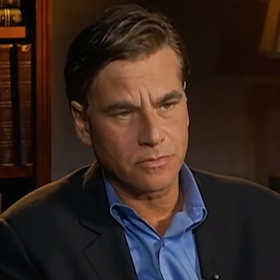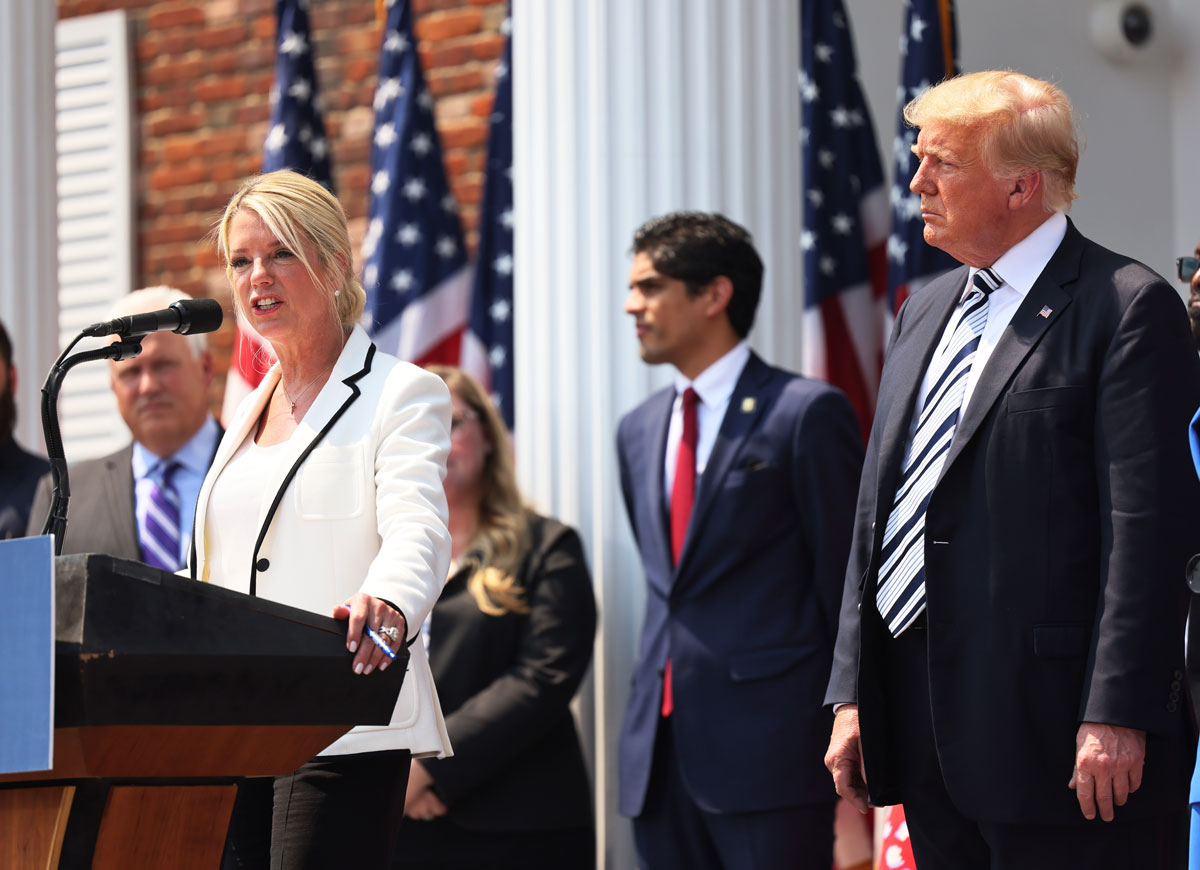Aaron Sorkin Apologizes For 'The Newsroom' During Tribeca Film Festival 'Tribeca Talks'
Aaron Sorkin apologized to viewers of The Newsroom at the Tribeca Film Festival’s Tribeca Talks: Future of Film series Monday night and suggested that the lack of women protagonists in film is due to the lack of good writing featuring female leads.
Sorkin, the Oscar-winning writer who created The West Wing and The Newsroom and wrote The Social Network, sat down with former speechwriter Jon Favreau (not the Favreau who directed Iron Man) for an hour long talk, where he spoke about the state of television today and writing for television and film.
Speaking of his HBO show The Newsroom, which will air its third and final season this summer, Sorkin said, “I think you and I got off on the wrong foot with The Newsroom and I apologize and I’d like to start over.”
Sorkin felt the need to clarify that he didn’t intend for The Newsroom to act as a reprimand to broadcast news professionals. Sorkin said that some viewers interpreted his decision to set the show in the not so distant past as a way of telling journalists how they should have done their jobs.
“I set the show in the recent past because I didn’t want to make up fake news… I wasn’t trying to, and I’m not capable of, teaching a professional journalist a lesson. That wasn’t my intent and it’s never my intent to teach you a lesson or try to persuade you of anything,” Sorkin explained.
Later, Sorkin used The Newsroom as an example when speaking about the hectic schedule of being a TV screenwriter, saying that he always wishes he could rewrite moments or scenes in his shows.
“I wish that I could go back to the beginning of The Newsroom and start again and replicate what you have with a play, which is a preview period… But I’m feeling really good about how the third season is going. I’ll look back on it fondly and proudly and wish I could get every scene of every episode back so that I could do it all over again,” Sorkin admitted.
Sorkin’s apology quickly went viral, no doubt in part due to the fact that The Newsroom has attracted very loud criticism and is widely considered to be a weak link in Sorkin’s repertoire.
One part of Sorkin’s talk is slowly making the rounds, especially among women commentators. During the Q&A portion of the talk, a woman asked Sorkin if he would ever consider writing a film for a female protagonist, considering the fact that 52% of moviegoers are women, yet only 15% of protagonists are female. Sorkin’s answer left much to be desired, and the acclaimed writer clearly has no intent of deviating from his male-centered dramas.
“I’ve always thought… I don’t know, is the answer to your question. You’re making a really good point about the disparity between who’s buying the ticket and who’s up on screen. Furthering that point, these decisions aren’t made entirely by men. There are roughly as many women who can green-light a film in Hollywood as there are men. From Amy Pascal at Sony to Stacy Snider at Dreamworks, Donna at Universal. But I’ve always thought that there is a great female James Bond movie to be done. I’m not literally calling her Jane Bond, I mean, but a female secret agent,” Sorkin responded.
The answer may appear to be perfectly correct and respectful, but many are pointing out that Sorkin’s assertion that women have as much power over what ends up in the market as men is completely off base. According to the Center for the Study of Women in Television and Film at San Diego State University, women made up “16% of all directors, executive producers, producers, writers, cinematographers and editors working on the top 250 (domestic) grossing films of 2013.” Not to mention the longstanding tradition of male-dominated Hollywood. One report recently stated that there was a 5 to 1 ratio of men working on films to women in 2013 and exposed the fact that the top ten highest paid actors made a total of $465 million combined in 2013, over twice the combined total of the ten highest paid actresses ($181 million).
Sorkin continued to say that Hollywood suffered from a lack of good writing featuring female protagonists – apparently missing the point of the question asking him personally to write a good female driven film.
“There’s a misunderstanding out there too. Because I’ve been reading a lot recently about how a female-driven movie like, say, Bridesmaids, is looked at as a fluke. The success of that movie is looked at as a fluke and therefore Hollywood doesn’t do it. That’s a premise that suggests that studio executives have piles of scripts as good as Bridesmaids on their desks. They don’t. Bridesmaids got made because it was really good. I promise you nothing but capitalism drives decision-making in Hollywood. If there’s a sense that this will make money, it’ll get made,” Sorkin said.
Sorkin is, undoubtedly, right in saying that Hollywood is driven by profit-seeking executives and studios, but some critics take this statement as a way of placing blame on the few women working in Hollywood instead of interpreting a problem.
– Olivia Truffaut-Wong
More on Aaron Sorkin and Tribeca:
> Patrick Stewart Got Emotional Leaving 'Match' Set [EXCLUSIVE VIDEO]
> 'X/Y' Director/Star Ryan Piers Williams Talks Working With Wife America Ferrera
> Thelma Schoonmaker Delivers Tribeca Masterclass On 'Raging Bull'
> Aaron Sorkin To Write Screenplay For Steve Jobs Biopic
Get the most-revealing celebrity conversations with the uInterview podcast!






Leave a comment